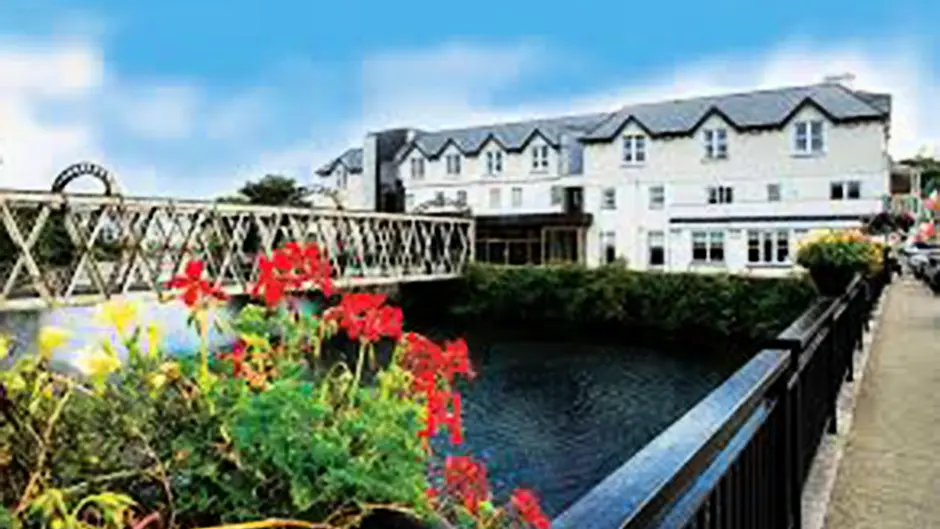Closures job losses and price hikes across West Cork's hospitality sector are inevitable, after the increase in VAT in Budget 2019, local business interests have warned.
CLOSURES, job losses and price hikes across West Cork’s hospitality sector are inevitable, after the increase in VAT in Budget 2019, local business interests have warned.
Hotels and restaurants are reeling with shock after the rate went from 9% to 13.5% in Tuesday’s Budget.
The situation is even more serious as many hotels have already agreed prices for weddings and functions for next year, based on the current rate.
Combined with the 3% increase in the minimum wage also announced, there are fears the combined costs will put many small firms out of business.
The industry was bracing itself for a slight hike, after the rate was reduced during recessionary times in 2011, but the sector has been blindsided by what is being seen as a savage swipe at rural Ireland. Hairdressers have also been impacted by the changes.
Chris Crowley, manager of the West Cork Hotel in Skibbereen, said it was unavoidable that the customer, to some degree, would feel the pain of this.
‘The West Cork, and other hotels, have already agreed prices for weddings and functions for next year and have to honour those. We will now have to either take that hit, or find a way to recoup the loss,’ he pointed out.
He said there was a general feeling of disappointment and of being let down by government, he said.
‘We are not seeing the same growth here as is the case in Dublin, or even Cork city. Something will have to give. It’s hard to know what this will bring, but it’s very short-sighted of the government.’
The significant decline in UK visitors, caused by Brexit volatility, had already put many in the industry under pressure.
Neil Grant, chair of the Irish Hotels Federation’s Cork branch, said the increase was ‘a serious jolt to the tourism industry in Ireland’ and represents a ‘reckless failure’ to recognise its economic potential and importance, particularly to rural Ireland.
Calling it a ‘short-term fix’, Mr Grant said it will have long-term implications for an important indigenous export industry and for rural Ireland.
Manager of The Clonakilty Park Hotel David Henry said Budget 2019 would take at least 40% off the bottom line of local hospitality suppliers.
‘That compares to between 5-10% in Dublin. It’s a lot to absorb and means that a menu that is now €26 a head has to become €28. It will have to be done. The government have let us down big time and are only fuelling inflation. This is not a good move for tourism.’
Castletownbere-based Ann Marie Cronin, who runs a B&B and restaurant, said the hike would have a ‘disastrous effect’ on business.
‘The government have no concept of running a business in rural Ireland,’ she said.
Meanwhile, businessman Eugene Scally of Scally’s SuperValu in Clonakilty felt not enough was done in Budget 2019 to financially support our award-winning food producers.
‘That was very disappointing. These are people who are working very hard, and I include farmers, and are not getting the financial rewards they need to sustain jobs or production, which is a great pity.
‘I know people coming in who work seven days a week and are feeling very disillusioned. If we don’t support them, they won’t be there in 20 years’ time and we’ll have a serious problem.’
He also pointed to a largely unknown fact that still bottled water is taxed at the 23% VAT, along with soft drinks.
‘People aren’t aware of this and something has to be done about it. The whole idea of the VAT on soft drinks I can accept, but the tax on water is a joke and was something that was slipped through quietly,’ he added.
Jason Field, general manager of Blackwater Motors in Skibbereen, described the budget as ‘lacklustre’ and a ‘missed opportunity’.
‘It has put business at risk by not increasing VRT to stave off UK imports and there was no strategic direction given on the roll-out of plans for electric cars and hybrids. It was a non-event, like looking at last year’s accounts, with this year’s date,’ he said.
But, referring to the exclusion of newspapers from the VAT rate hike, Southern Star managing director Sean Mahon said: ‘I’m pleased the government has shown its support for the valuable role that newspapers play in Ireland and I welcome the retention of the 9% VAT rate for printed newspapers. I would also welcome the reduction to 9% for online publications, which will help us further develop access to quality journalism online from trusted news brands. Several European countries, including the UK, apply zero or even lower VAT rates to newspapers to support the industry, so I see this week’s decision as a positive step in the right direction.
‘However,’ he added, ‘I am disappointed that the tourism and hospitality industry, which is such a major employer in this region, has been hit badly this week. It’s important that we all continue to support this sector now, more than ever, in any way we can.’
Ann Davoren, director of the West Cork Arts Centre in Skibbereen, where the prestigious famine exhibition will close this weekend, welcomed the €7m increase for the Arts Council. ‘For arts organisations like the West Cork Arts Centre, Arts Council funding is the bedrock of publicly-funded arts production and presentation nationally. We apply for Arts Council funding on an annual basis, and we have been successful in being awarded year-on-year increases in our budget over the last number of years and with this announcement, would hope that that will be the trend for 2019 as well.’









